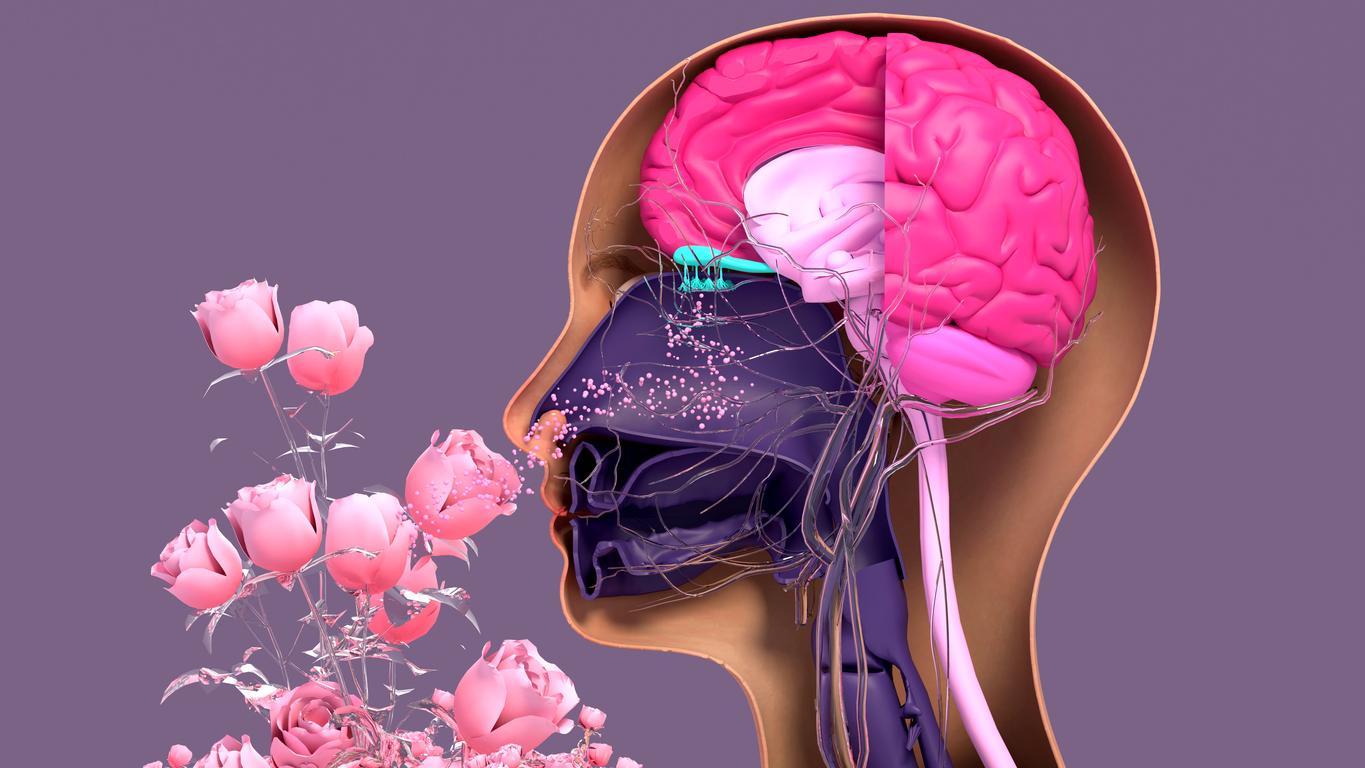A poorly understood disease, nasal polyposis has significant repercussions on the daily lives of patients. In particular because it can cause a loss of smell. Update on this respiratory disorder with Dr. Elsa Darnal.

Why Doctor – Nasal polyposis, as shown by a survey conducted for Sanofi Genzyme, is a poorly understood disease. Can you explain to us what it is?
Dr Elsa Darnal : Nasal polyposis, also known as naso-sinus polyposis, is a form of chronic sinusitis. It is an inflammation of the mucous membranes at the level of the upper respiratory tree, ie the nose and the sinuses. It affects approximately one million patients in France and it is a disease that is not well known to the general public. It is characterized by fairly non-specific signs, nasal obstruction with difficulty in breathing through the nose, discharge, pain, a feeling of pressure in the face and forehead and smell disorders which can go as far as the complete loss of this sense, which is called anosmia. We speak of chronic rhinosinusitis when the disorders last for more than three months.
– How can it be distinguished from a cold or non-chronic sinusitis?
For a simple cold, there is no reason for it to last more than three months! So the duration can challenge and indeed, when you have these signs you don’t necessarily have nasal polyposis. To make this diagnosis, it is necessary to make an examination which makes it possible to visualize possible polyps, which is done from a nasal endoscopy with an ENT doctor. Polyps are actually growths that look like small grains of reason that can be seen by looking inside the nose. If you have the symptoms just mentioned and there are polyps on either side, you can talk about nasal polyposis.
– Can a link exist between nasal polyposis and allergic reactions such as hay fever?
There has been a lot of discussion about this. In the current state of knowledge, the answer is rather NO. On the other hand, there are actually more cases of polyposis in people who have this type of allergy and these will add to the symptoms. But it is not the allergy that will cause polyposis, nor the reverse.
– Does nasal polyposis increase the risk of Covid infection?
Recent studies show that there is no more risk.
– From what age can a nasal polyposis appear?
Naso-sinus polyposis is rather a disease of adulthood that occurs in the late 30s or early 40s. Both sexes can be affected but there are slightly more males than females.
– Do we know the causes of this disease?
The causes are relatively unknown. There are factors that have been discussed, including the role of the environment, pollution, but it’s really not sure, we’re also talking about Staphylococcus aureus… What we do know, however, is that it is often associated with asthma. About 50% of patients with nasal polyposis have associated asthma. What is certain is that in the underlying mechanisms, there is an inflammation which is chronic, an imbalance of the inflammatory balance which can cause this inflammation of the respiratory tree.
– What can be the impact of this disease on daily life?
It is a disease that can be considered benign… however it can have major repercussions: the fact of having a permanently stuffy nose, a runny nose, already this can have a social impact, one does not feel not very comfortable; and then there are sleep disorders which are caused by this congestion of the upper airways, it is difficult to breathe through the nose, and who says sleep disorders says fatigue, irritability, difficulties at work, and then there is psychological repercussions, patients feel isolated and some become depressed, with anxiety having a high prevalence in this condition.
– It is said that nasal polyposis can lead to loss of smell. Is this the case for everyone who suffers from it?
Loss of smell is not present in 100% of patients. In some patients it may be permanent but in others it may be intermittent. But smell disorders are really part of the signs that indicate nasal polyposis and a significant proportion of patients actually have smell disorders that can go as far as complete anosmia. This is one of the most troublesome symptoms for patients. Those whose polyposis causes anosmia are those who are most likely to have depressive disorders, they suffer from a feeling of isolation, the feeling of being misunderstood, of living like in a bubble… Above all, they are handicapped on a daily basis by questions such as “do I smell bad”, by the absence of pleasure from the table, from feeling and being able to share the taste of what we eat since smell and taste are very closely linked, and then there is a possibility of endangerment with the fact of not smelling, for example, the smell of gas, the smoke from a fire or the smell of unhealthy food. Many patients say that by losing their sense of smell they lose their compass and also part of their emotions, their memories, the scent in the air and all that accompanies it has been the subject of many literary works !
– In the survey that was carried out, some patients evoke suicidal temptations linked to this loss of smell following a nasal polyposis. The consequences can go so far?
This is one of the revelations of this survey, this consequence comes out very very strongly from this survey and it was difficult to think that it went that far. But no study has yet to confirm or refute this element. The survey figures must also be interpreted in the context of the health crisis which has degraded the mental health of the French. But remember that the link between nasal polyposis, loss of smell and depressive syndrome is real.
– How can nasal polyposis be treated?
There are local treatments, general treatments and surgical treatments that are effective. The choice of treatment depends on the severity of the attack. There are many patients who will be relieved by local treatments such as corticosteroid sprays sometimes combined with saline washes. But there are more severe forms which will not be relieved and which will need corticosteroid tablets which often provide transient relief, very useful treatments but which should not be abused because of the risk of serious side effects such as gastrointestinal disorders, cardiovascular diseases, diabetes or even osteoporosis. Another level of treatment is surgery, the objective of which is to remove the polyps to unclog the airways. But all these treatments do not cure the evil at the root and the risk of recurrence exists for some patients, including after surgery.
– Do the surgical treatments consist of heavy interventions?
In the vast majority of cases, this is done endonasally with general anesthesia. The post-operative consequences are mainly bleeding in the nose, but these interventions may involve risks with ocular or cerebral complications due to the proximity of the sinuses to these organs.
– In case of anosmia, what is the management?
The mechanism of anosmia in polyposis is not yet fully understood. There are several components: first the nasal obstruction and the inflammatory phenomenon which affects the mucosa. Surgery will release the obstruction, corticosteroids can treat the inflammation. There are new therapies that should soon be available for polyposis with an effect when it causes anosmia, these are biotherapies that will target a specific element in the inflammatory dysfunction. They show efficacy on the different aspects of polyposis. These long-term subcutaneous injection treatments will be aimed at patients suffering from particularly severe forms who are not relieved by currently existing treatments.
Below: the program Questions aux Experts on the therapeutic turn of biotherapies in nasal polyposis:
.















